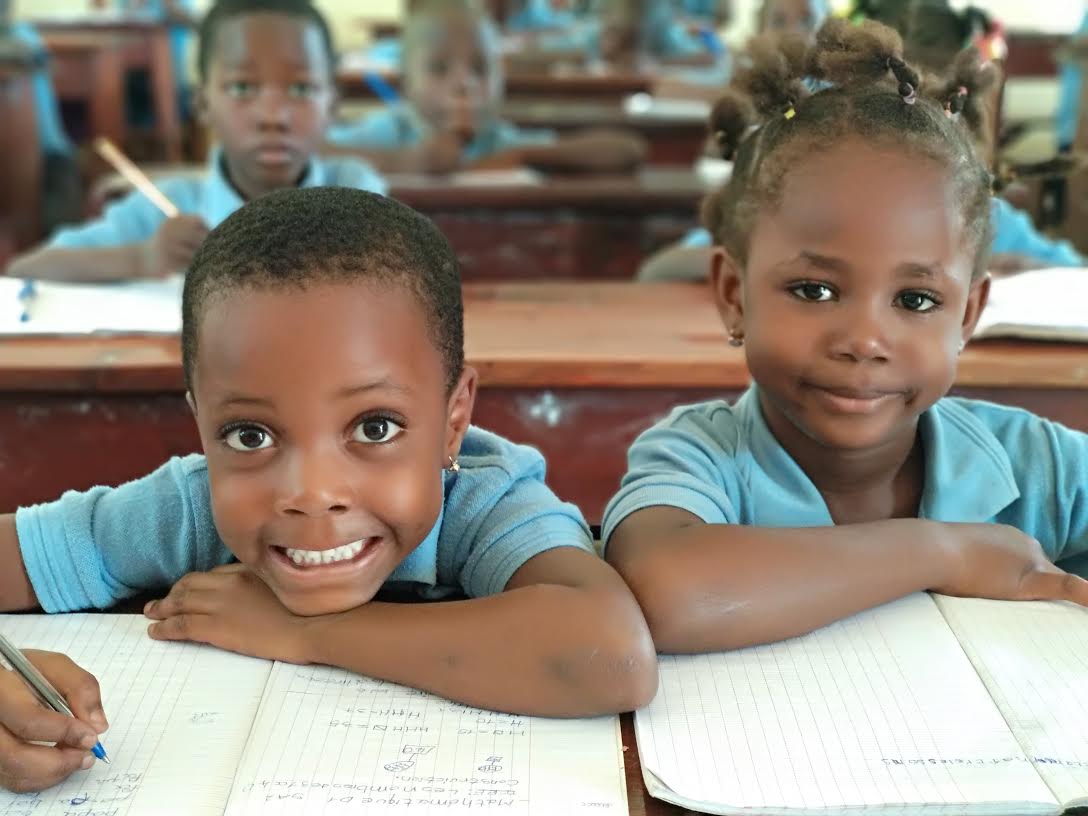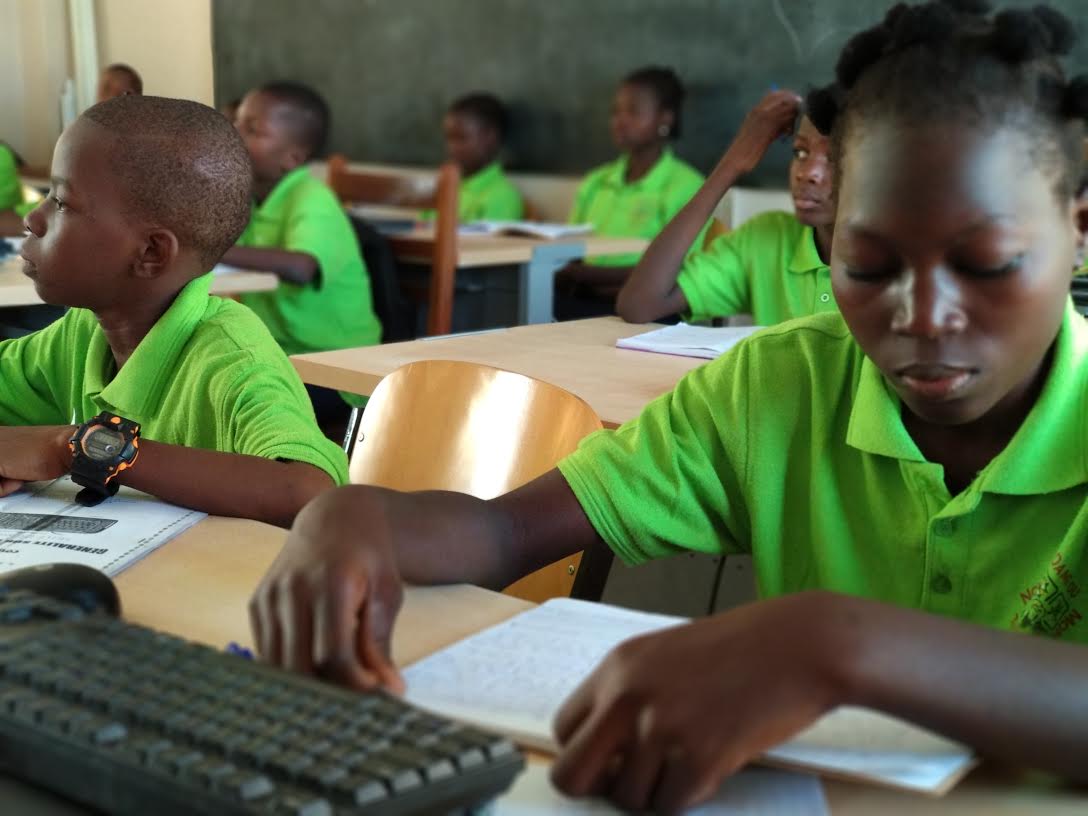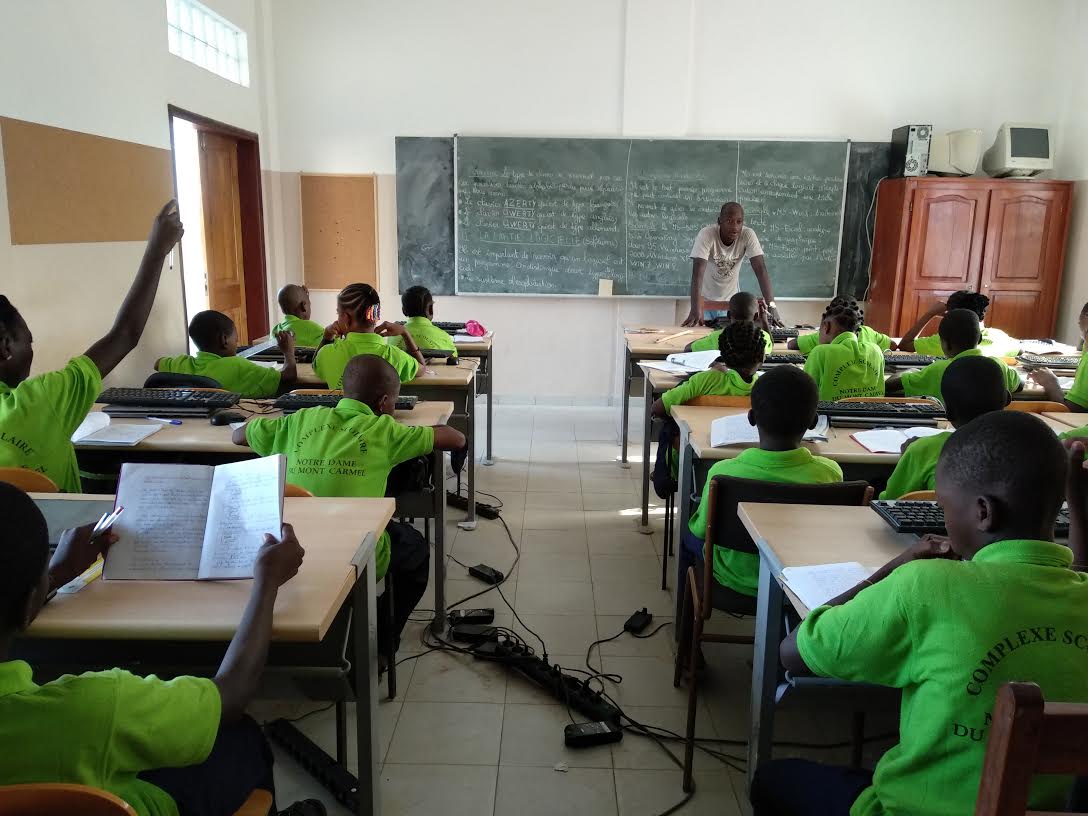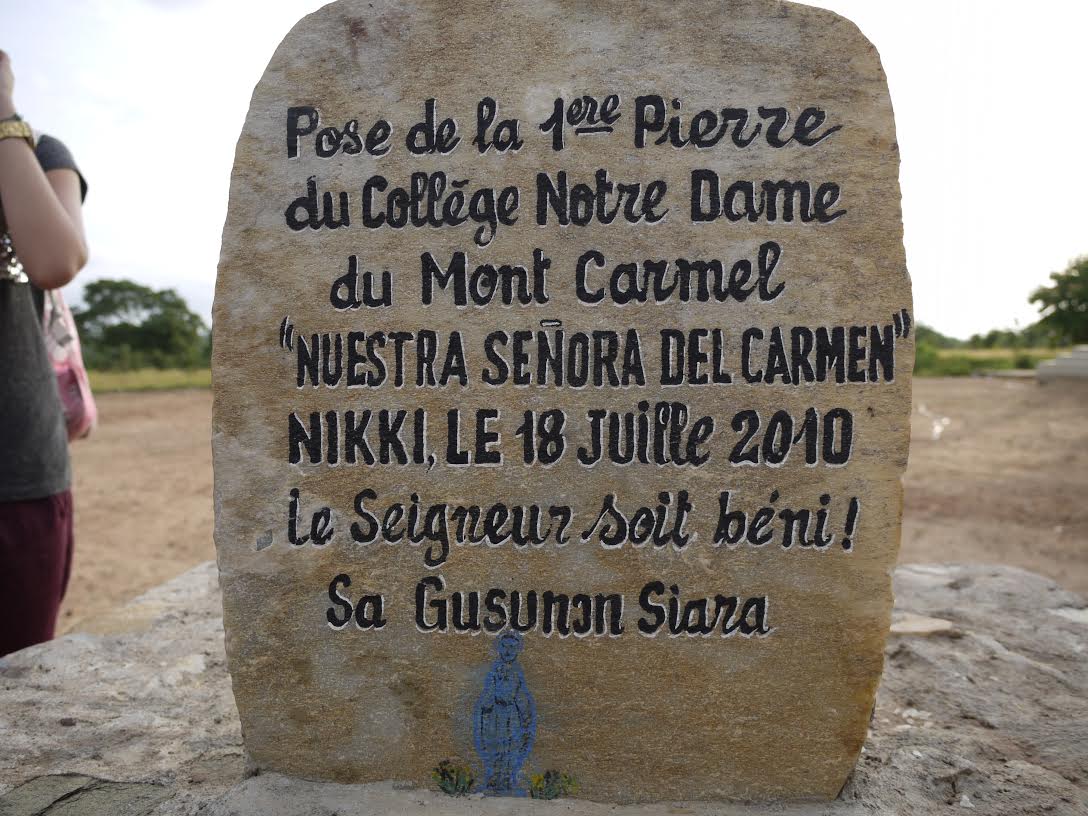Educational institution
AFRICA Battered and yet emerging and full of life, energy and enthusiasm, it seeks a way out of underdevelopment and poverty. And what is the basis for this? Education. As Nelson Mandela said, “Education is the most powerful weapon to change the world.” And yet, despite the advances, the continent remains, in general terms, the one with the lowest educational performance on the planet.
A COUPLE OF NUMBERS In recent years, the efforts of governments and international organizations in this area have been clear. In 1999, there were 82 million children in African schools, and in 2010 there were almost 133 million. However, the universalization of basic education is still a long way off, especially a long-lasting education in ideal conditions. According to UNICEF, some 124 million children were unable to access primary education in 2013. It is in this context that FUNDEBE intends to do its bit, in Benin.
CREATING A SCHOOL, WITH QUALITY EDUCATION, is to date the central project of FUNDEBE’s activity: a center that covers all ages from kindergarten to high school (boys and girls between 5 and 17 years old) in Nikki, Benin. The country’s literacy rate is among the lowest in the world. In 2010, only 42.4% of people over the age of 15 could read and write (and only 30% of women). Nikki is located in the north of the country, the poorest area. The population subsists mainly on cotton-based subsistence agriculture. Illiteracy means that peasants are completely helpless when it comes to setting a fair price for their products on the market.
THE BEGINNINGS Aurelio Favi, a Beninese priest at the parish of the Baptism of the Lord in Madrid, promoted the project from scratch. Joining forces with a group of people who were involved in such an ambitious project, FUNDEBE was created in 2008 and the first steps were taken for the construction of the school. The objective is very clear: to use education as a weapon against poverty.
COLLABORATION & CONSTRUCTION From the beginning, the local support of both the population and the authorities was crucial. After numerous studies and proposals, a modular design of 4 phases was chosen, each phase being a two-storey building, so that once the first phase was built the school could start operating. The first of these phases was completed in September 2011, just in time for the start of the school year, for which the school had 70 students enrolled. By the beginning of the 2014-2015 academic year, the second phase was already ready, allowing a sustained growth of the student body, which in the 2016-2017 academic year reached 345 students distributed between the cycles of infant, primary and secondary. In recent years, we have also built additional facilities such as a dining room, a cistern, a storage room and a dedicated space for both students and staff to meet safely from the elements when they are not in class. In the 2023-2024 academic year we have 572 students.
PRESENT Given the growth of the school, the main investment in recent times has been for the construction of the third phase (classroom building, library and administration) of the school, which will allow us to continue to welcome a growing number of students. It is scheduled to open in September 2024.
The management of the school is in the hands of a team of local teachers with extensive experience, and who teach an educational program approved with government requirements, having achieved great academic successes such as obtaining, in September 2023, 6 of the 31 academic awards in the Borgou region (with a population of 1.3 million).
FUTURE The school continues to grow day by day. The next planned works include a sports field, the paving of the areas that connect to the main buildings, and the construction of a chapel with donations expressly made for this purpose.
And more in the long term, what do we envision? Expansion of facilities, provision of vocational training in the agricultural field, sports areas, etc. There’s a lot to do.
We know that the challenge is tough and long-term, and that ours is just one of the countless efforts needed to change things. But we have a goal, and we have the weapon: education.




